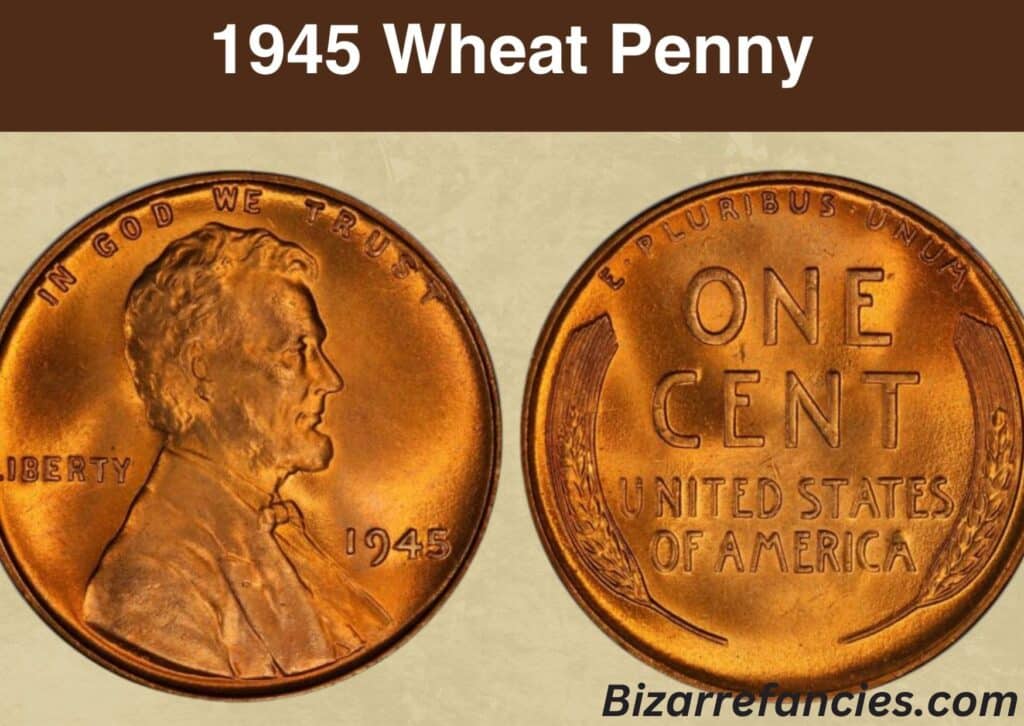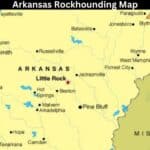The 1945 Wheat Penny Coin Value holds a special place in the hearts of numismatists and casual collectors alike. As one of the final issues of the Wheat Penny series before the U.S. transitioned to a new design, this coin is both historically significant and widely collected. In this guide, we’ll explore the history, value, and unique errors associated with the 1945 Wheat Penny Coin to help you understand its place in the world of collectible coins.
The History of the 1945 Wheat Penny
The 1945 Wheat Penny was minted at the tail end of World War II, a period marked by major shifts in global politics and the U.S. economy. During the war, metals like copper were critical to the war effort, leading to the temporary use of steel for pennies in 1943. By 1945, the U.S. Mint had returned to using a copper alloy for the penny, specifically 95% copper and 5% zinc.
Why the 1945 Wheat Penny is Important
The 1945 Wheat Penny Coin represents the post-war shift back to normalcy, both in coin production and American society. With its enduring design featuring Abraham Lincoln on the obverse and the iconic wheat ears on the reverse, it is one of the most recognizable coins minted by the US Mint. The design itself was created by Victor D. Brenner, who originally introduced it in 1909.
Types of 1945 Wheat Pennies
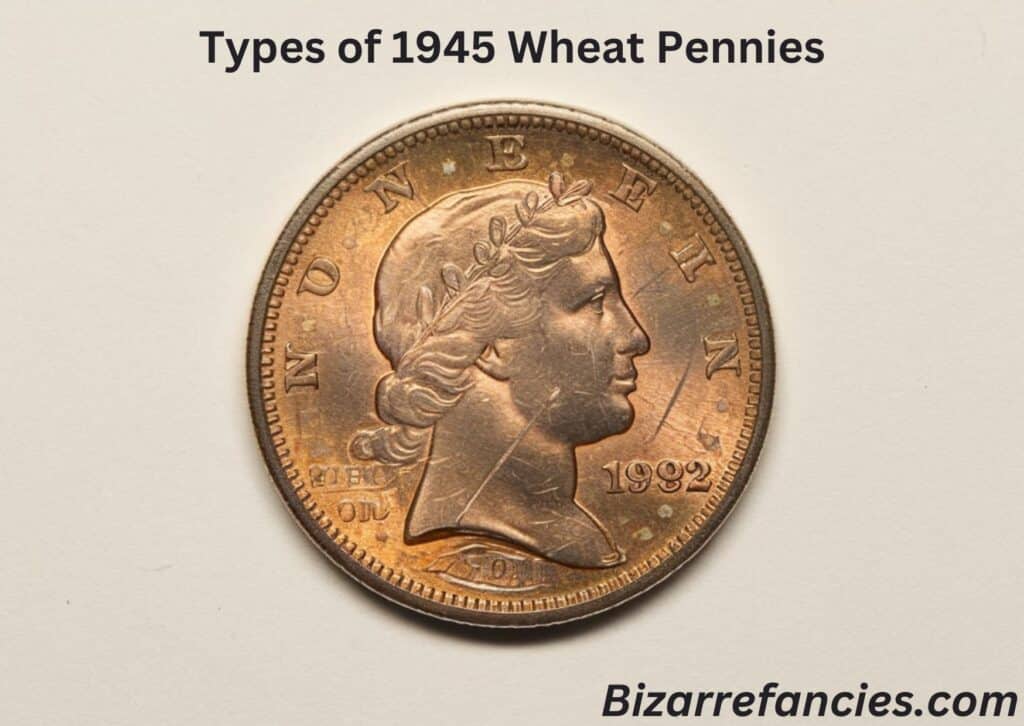
Three main types of 1945 Wheat Pennies exist, each minted in different locations and distinguished by their mint marks.
- 1945 No Mint Mark (Philadelphia Mint)
The most common variant, this penny was struck in Philadelphia and lacks any mint mark. - 1945 D Wheat Penny (Denver Mint)
Identified by a small “D” below the date, these coins were minted in Denver and tend to be more valuable due to their smaller mintage. - 1945 S Wheat Penny (San Francisco Mint)
Pennies struck at the San Francisco Mint bear the “S” mint mark. These are typically scarcer than the Philadelphia version but still relatively common compared to other years.
Design Features of the 1945 Wheat Penny
The Obverse (Front)
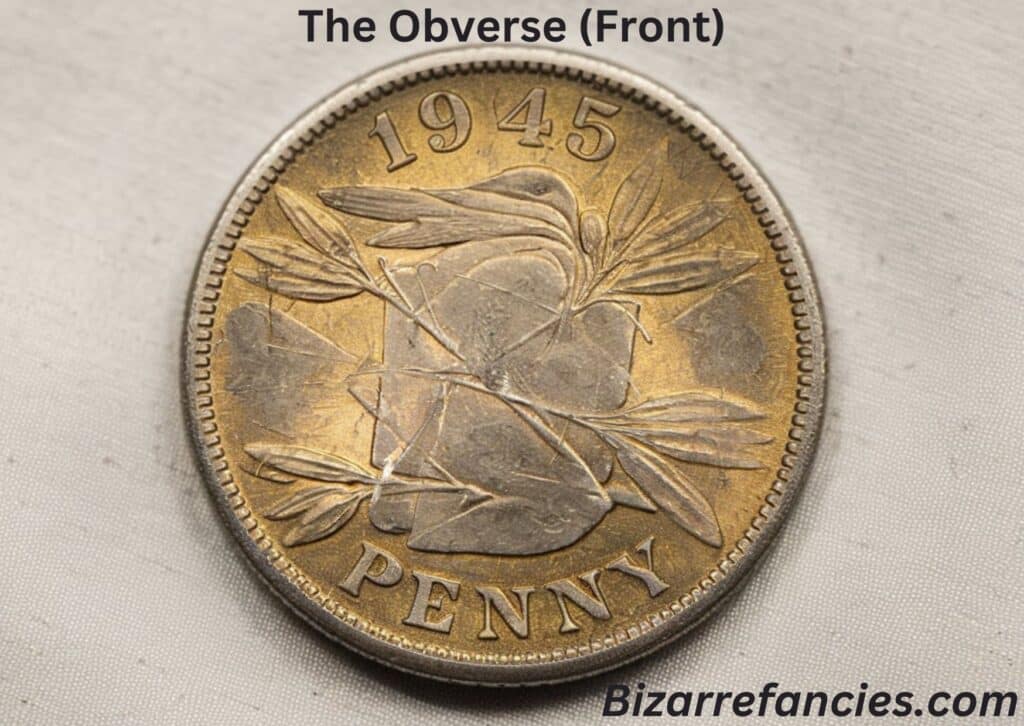
On the obverse of the 1945 Wheat Penny, you’ll find the familiar portrait of Abraham Lincoln, designed by Victor D. Brenner. The date and mint mark, if applicable, appear just below Lincoln’s image, while the words “IN GOD WE TRUST” arch above his head. This design has been a cornerstone of U.S. coinage for decades.
The Reverse (Back)
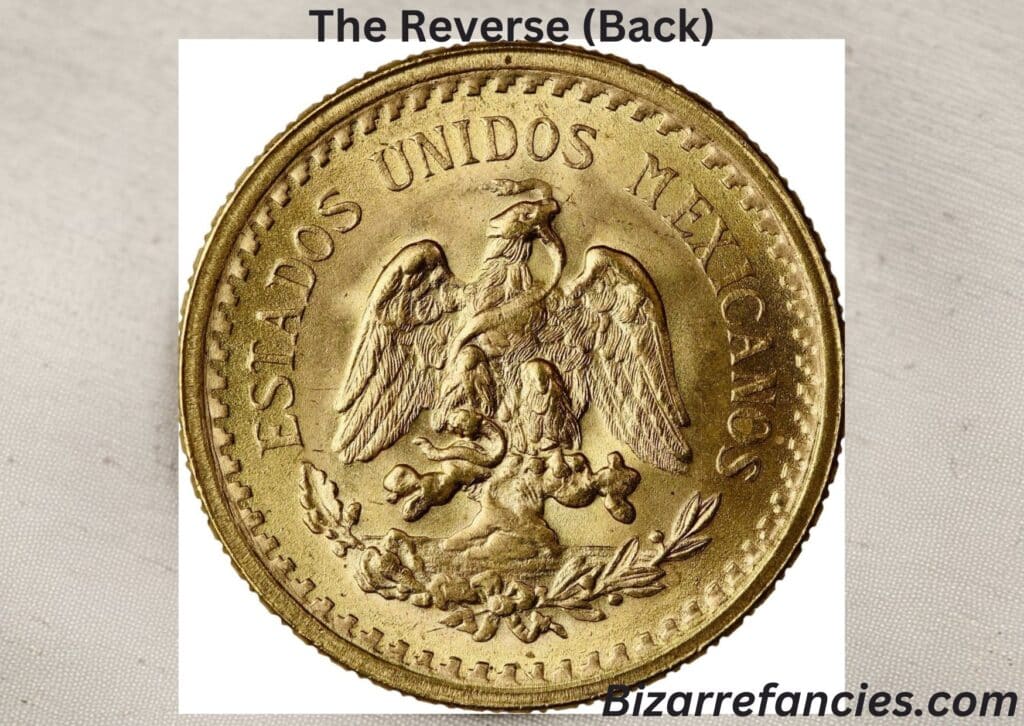
The reverse of the 1945 Wheat Penny features two wheat stalks, symbolizing prosperity. Between the stalks, the words “ONE CENT” and “UNITED STATES OF AMERICA” are inscribed, along with the phrase “E PLURIBUS UNUM” at the top.
Technical Specifications
| Specification | Detail |
| Composition | 95% Copper, 5% Zinc |
| Weight | 3.11 grams |
| Diameter | 19.05 mm |
| Edge | Plain |
| Thickness | 1.52 mm |
| Designer | Victor D. Brenner |
These specifications were consistent across all three mint types, and while minor variations exist due to wear and striking errors, this provides a solid basis for identifying the coin.
Must Read:https://bizarrefancies.com/1982-penny-coin-value-worth/
1945 Wheat Penny Grading and Condition
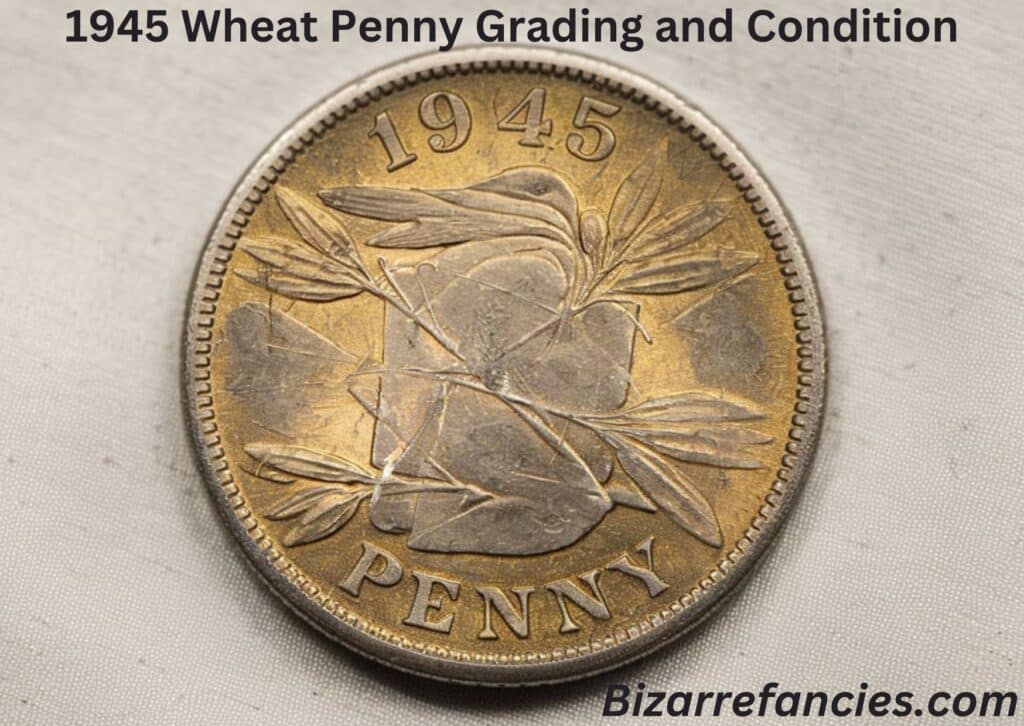
The value of any 1945 Wheat Penny depends heavily on its condition grades. Coins are graded on the Sheldon Grading System, which ranges from Poor (P-1) to Mint State (MS-70). Here’s a quick guide to how different conditions affect value:
- Good (G-4): Heavy wear but all major details are visible.
- Fine (F-12): Moderate wear with clear details, but some areas may be smooth.
- Very Fine (VF-20): Slight wear on high points; overall details remain strong.
- Extremely Fine (EF-40): Minor wear on high points, all details are crisp.
- About Uncirculated (AU-50): Light wear on only the highest points.
- Mint State (MS-63 to MS-67): No wear, with full luster and strong details.
Coins graded MS-67 Red command the highest prices because of their exceptional condition and rich, original color. The red, brown, and red-brown colors reflect different oxidation levels in the copper alloy and can significantly impact the coin’s value.
1945 Wheat Penny Value Guides
The value of a 1945 Wheat Penny varies based on its mint mark, condition, and any error coins that may exist. Below is a general breakdown of typical prices:
No Mint Mark (Philadelphia) Wheat Penny Value
| Grade | Value |
| Good (G-4) | $0.05 – $0.10 |
| Fine (F-12) | $0.10 – $0.20 |
| Extremely Fine (EF-40) | $0.50 – $1.00 |
| About Uncirculated (AU-50) | $1.50 – $2.00 |
| Mint State (MS-63) | $3.00 – $5.00 |
| Mint State (MS-67 Red) | $3,000 – $4,000 |
1945 D (Denver) Wheat Penny Value
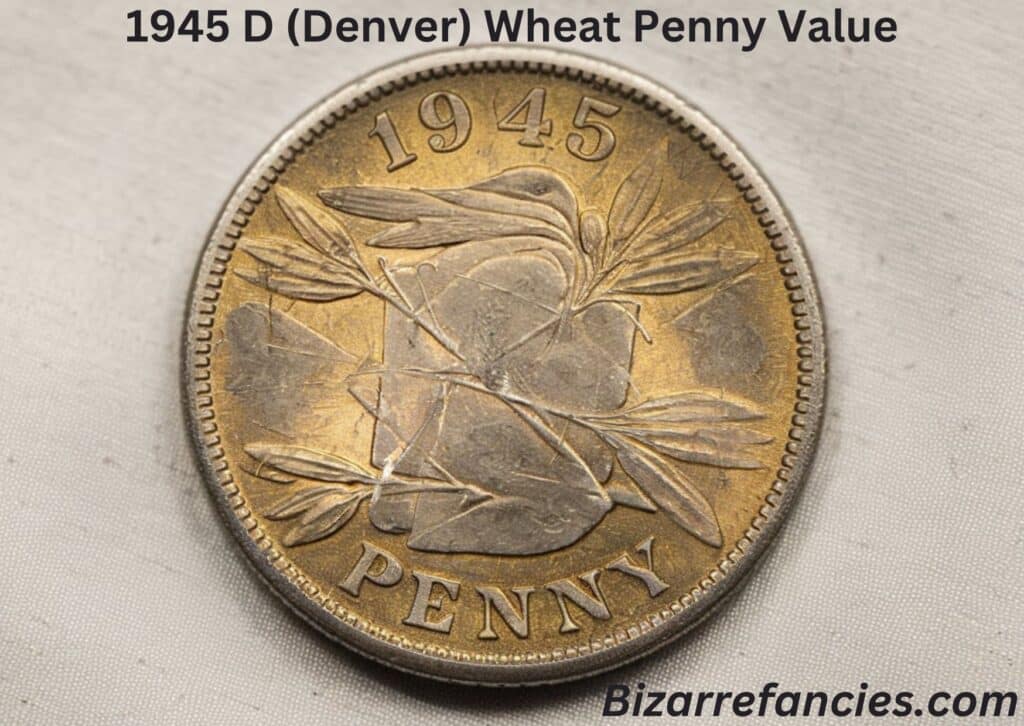
| Grade | Value |
| Good (G-4) | $0.05 – $0.15 |
| Fine (F-12) | $0.15 – $0.25 |
| Extremely Fine (EF-40) | $0.75 – $1.50 |
| About Uncirculated (AU-50) | $2.00 – $4.00 |
| Mint State (MS-63) | $6.00 – $8.00 |
| Mint State (MS-67 Red) | $6,000 – $7,500 |
1945 S (San Francisco) Wheat Penny Value
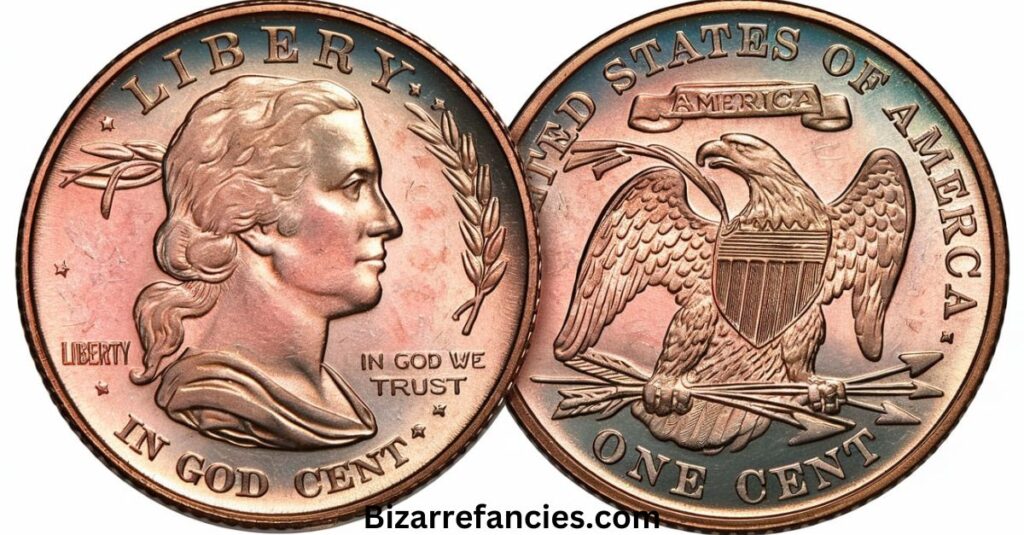
| Grade | Value |
| Good (G-4) | $0.05 – $0.20 |
| Fine (F-12) | $0.20 – $0.30 |
| Extremely Fine (EF-40) | $1.00 – $1.50 |
| About Uncirculated (AU-50) | $3.00 – $5.00 |
| Mint State (MS-63) | $5.00 – $7.00 |
| Mint State (MS-67 Red) | $5,000 – $6,500 |
As you can see, higher grades, particularly those with full “red” luster, can command significant premiums at auctions.
Rare 1945 Wheat Penny Errors List
Error coins can dramatically increase the value of a 1945 Wheat Penny. Here are some of the most sought-after errors:
- Clipped Planchet
This occurs when the blank planchet used to strike the coin is improperly cut, leaving a missing section. Values range from $50 to $150, depending on the severity and condition. - Lamination Flaw
This error occurs when a portion of the metal peels away from the surface, creating a layered appearance. Values typically range from $30 to $100. - Doubled Die (Obverse or Reverse)
A doubled die occurs when the die used to strike the coin features a misaligned or duplicated design. These errors can be worth thousands, with certain examples fetching up to $5,000. - Broad Strike
Broad strike errors occur when the coin is struck outside of the collar, causing the design to spread out. This error is less common but can fetch $100 or more. - Weight Error
A weight error results from a coin being struck on a planchet that is too heavy or too light. These errors are rare and can be highly valuable, often selling for several hundred dollars.
How to Identify a 1945 Wheat Penny Error
Identifying errors can be tricky. Here’s what to look for:
- Use a magnifying glass or a digital microscope to closely inspect the coin.
- Look for doubling in the letters or numbers, clipped sections, or irregularities in the surface metal.
- Compare your coin to known examples of error coins listed by grading services like PCGS or NGC.
Once you’ve identified a possible error, consider having the coin certified by a professional numismatics service. Certification can confirm authenticity and significantly boost the coin’s auction record value.
Where to Sell Your 1945 Wheat Penny
There are various ways to sell your 1945 Wheat Penny, depending on its value and condition:
- Coin Dealers: For common coins, local coin shops may offer quick sales.
- Online Auctions: Platforms like eBay or Heritage Auctions are great for selling rare or high-grade coins.
- Coin Shows: Attending local coin shows can help you
connect with collectors. - Grading Services: Before selling, consider getting your coin graded by PCGS or NGC to maximize its value.
Conclusion
The 1945 Wheat Penny is a fascinating coin, not just for its historical context but also for its potential value among collectors. Whether you have a common No Mint Mark penny or a rare error coin, this penny holds an enduring appeal that transcends its face value.
Collecting, grading, and trading Wheat Pennies is a hobby that brings history to life, and the 1945 edition is one of the most accessible yet intriguing coins in the series.

Oliver Leo is an experienced blogger who explores the unusual and fascinating aspects of life. With a passion for adventure and discovery, he dives deep into topics like Dumpster Diving, Metal Detecting, and Coin Collecting, sharing his knowledge and insights on Bizarre Fancies.

